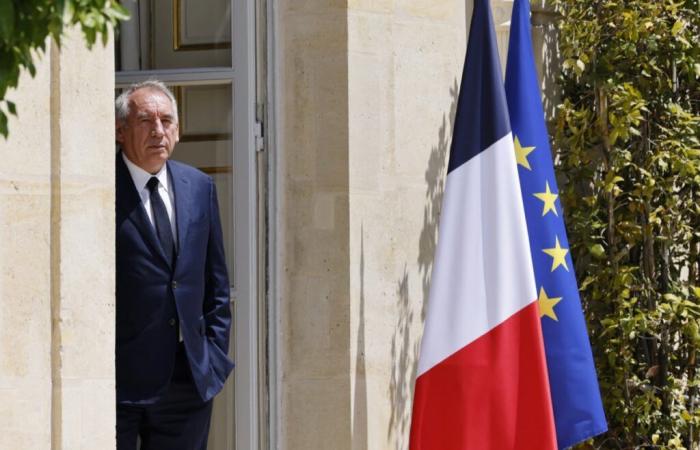
Having just been appointed Prime Minister, François Bayrou will have to quickly confront the National Assembly on burning issues inherited from Michel Barnier. In addition to the creation of a coalition government, the new tenant of Matignon will have a busy program.
François Bayrou will have to seek an agreement to survive longer than the short-lived Michel Barnier and have a budget adopted, in a fractured political landscape. The former minister and current president of MoDem was appointed to Matignon and his agenda looks busy in the coming days in the hope of uniting and avoiding any censorship.
Form a government
The Prime Minister's first mission will be to form a government. If Emmanuel Macron's desire is to open the casting to the arc going from the Republican Right (LR) to the Socialist Party, or even to the ecologists, effectively excluding the RN and LFI, the left could nevertheless refuse to participate to a government that would not be led by an NFP Prime Minister. The First Secretary of the PS, Olivier Faure, also confirmed this Thursday the immediate exclusion from the party of any elected official who would join a government led by a right-wing or center personality.
If the Head of State sought to ensure that the future executive will benefit from a “non-censorship pact” from the Socialist Party and environmentalists in particular, hope therefore seems to be in vain. An equation all the more complex for the Prime Minister, who could only be able to count on personalities from the right and the macronie to compose his government. A government which should therefore more or less resemble that of Michel Barnier, who had barely held power for three months before being censored.
A special amended law?
But that's not all. François Bayrou's priority task will be to resume the debates on the budgetary measures, left in abeyance after the censorship. The special law, presented to the Council of Ministers, is in fact made up of only three articles to mainly authorize the government to raise taxes and spend credits on the basis of the 2024 budget. If its adoption leaves little doubt after its examination Monday in the National Assembly, then on December 18 in the Senate, certain questions still divide the political class.
Because behind the scenes there is a debate on the indexation of income tax to inflation, which normally appears in the state budget. In the absence of a new budget, “380,000 new households” could find themselves taxable in 2025, while nearly 18 million French people would see their taxes increase. According to the oppositions, accused of being responsible for the situation due to the vote of censure, it is possible to amend this special law to index the income tax scale by renewing the same number of taxpayers as in 2024.
For the outgoing government, the maneuver would be unconstitutional because it would take the text out of its framework strictly established by law. It is also based on an opinion from the Council of State which considers that indexation has no place in this law, which must only renew existing taxes. Furthermore, behind the constitutional dispute there is a political standoff at play: if parliamentarians adopt the amendment, no party could be tempted by the risk of seizing the Constitutional Council on a measure that is by nature very popular.
A budget at the start of 2025
After the adoption of the special law, the time will come for the new Bayrou government to propose a new finance law for 2025. Both for Social Security, but also for the State. Two solutions will be offered to the Prime Minister: resuming a budget based on that of Michel Barnier, hoping to build a larger majority to avoid censorship, or proposing new compromises to satisfy the opposition, at the risk of direct towards a budget “emptied” of the priority objectives put forward by the presidential camp, namely: reducing the public deficit, which could exceed 6% of GDP in 2024.
The option of 49.3 remains on the table, even if many deputies have already warned that the same causes will lead to the same consequences: censorship. However, this provision could prove essential for the Prime Minister, given a fragmented Assembly without a majority, where at least six groups would need to validate the project – or at least abstain – to pass a budget by mutual agreement. However, we must give guarantees to everyone, which also reduces the possibility of making savings to make up the deficit.
Finally, the content of the budget should be of capital importance. If he leans to the left, the right will not vote for him, if he leans to the right the left will not vote for him and the deputies will have difficulty endorsing their vote, which marks their position in the opposition or the majority. In short: the political crisis could well continue into 2025 and the new Prime Minister is not guaranteed to be the same as in the spring, while waiting for the month of July, when only a new dissolution of the National Assembly could unblock the situation, and reshuffle the cards.





